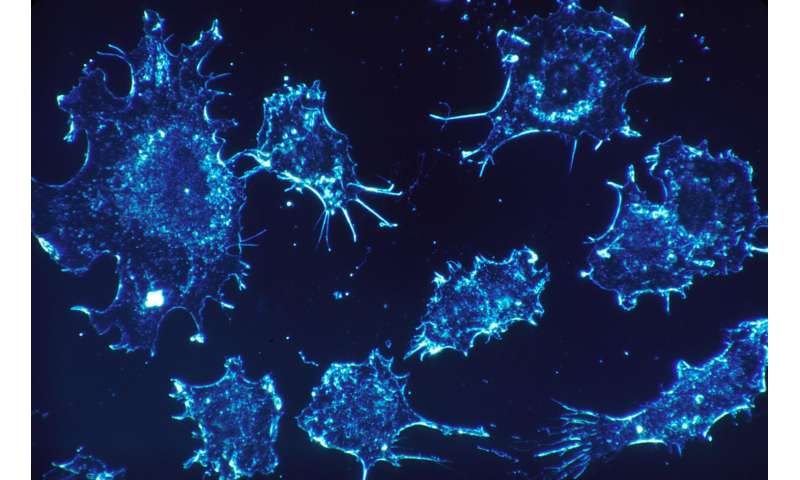
In an effort to improve the survival of patients with myeloproliferative neoplasms, a type of leukemia, researchers inhibited a specific protein (alpha5beta1 integrin) to decrease the number of large bone marrow cells (megakaryocytes) in an experimental model. An increase in megakaryocyte numbers is thought to be the cause of many problems observed in this disease. This type of treatment approach has never been attempted before.
Myeloproliferative neoplasms are a type of blood cancer that begin with a pathological mutation (change) in a stem cell in the bone marrow which causes too many red blood cells, white blood cells, or platelets to be produced. Most patients die of transformation of the disease to a more fatal leukemia or because of myelofibrosis, a scarring of bone marrow. There are currently no specific treatments for myelofibrosis.
“To date, most drug development efforts have been focused on the JAK2V617F mutation, but this approach has failed to fundamentally change the course of disease. Our study has taken a totally new approach for treatment of the disease, which, if successful, will present a complementary or even an alternative therapy to existing treatments,” explained lead author Shinobu Matsuura, DVM, Ph.D., instructor of medicine at Boston University School of Medicine (BUSM).
Using two sets of experimental models, the researchers altered the JAK2V617F gene in one group to induce symptoms of myeloproliferative neoplasms. The second group were the control. When both groups were exposed to an antibody against alpha5beta1 integrin, the number of megakaryocytes decreased in bone marrow in the group with the altered gene, while no changes were seen in the control group.
Source: Read Full Article
